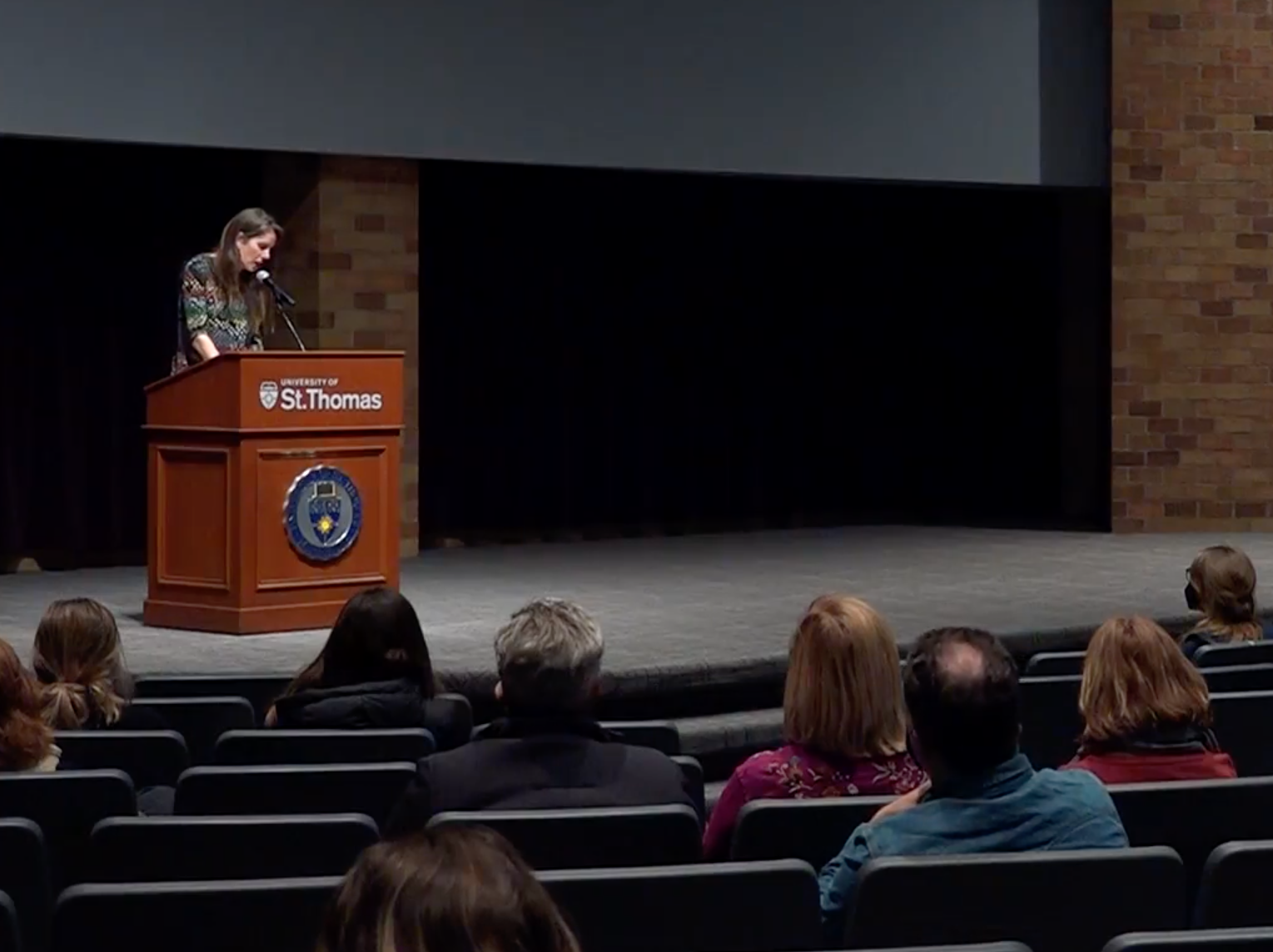St. Thomas’ Luann Dummer Center for Women hosted Leslie Jamison, an acclaimed author and novelist, March 8.
Jamison conducted a writing workshop with a small number of St. Thomas students and gave a lecture to community members titled “Taking Care: Nostalgia, Caregiving, and Women After the Pandemic,” which focused on COVID-19 and how it affected women.
“When I think about women and the pandemic, I think about how gender roles and the unequal distribution of domestic work have become more visible during the pandemic,” Jamison said. “It isn’t a problem we’ve solved, it’s something we carry with us. It’s something we keep reckoning with.”
Jamison is the director of the non-fiction concentration in writing at Columbia University’s School of the Arts. Her writing has been praised by The New York Times, NPR and Publishers Weekly. While the pandemic changed how Jamison worked, it helped her realize the disparate burden of child care on women.
“Women are picking up more of the child care burden when schools and daycares are shut down, feeling once again as they have long before the pandemic ever arrived, the strain of being the bottom line,” Jamison said. “Solving the impossible equation of being there for their dependents and showing up for their work, when they were lucky enough to have work at all.”
Jamison was interested in learning about the lives of the students who attended her workshop and how the pandemic has impacted them and their writing.
“I’m going to share some thoughts, but I really just also want this to feel like a conversation. So I will be asking you guys questions, and even when I’m not asking a question, feel free to say something and jump in anyway,” Jamison said.
In her lecture, Jamison reflected on the systemic inequality the pandemic has manifested and discussed what “normal” should look like as the pandemic seemingly comes to an end.
Jamison shared personal stories of contracting COVID-19 in early 2020 while simultaneously caring for her 2-year-old daughter and teaching remotely as a professor at Columbia.
“Once I realized I would be spending many weeks alone at home with my daughter, I made us a daily schedule with clumsy illustrations,” Jamison said. “But once I got sick, even the limited life outlined on our rainbow schedule, its cheerful colors radiating compensatory, forced optimism, now seemed naive in its aspirations. Anchored by walks I could no longer take, meals I could no longer taste and activities that required staying vertical longer than I could manage.”
Jamison believes society’s desire to return to pre-COVID-19 “normal” raises questions about the state of equality in the first place.
Jamison used the surge of the Black Lives Matter protests after the killing of George Floyd in the summer of 2020 as an example.
“Pushing back against the syntax of wanting things to ‘return to normal,’ the protests demanded instead an interrogation of normalcy itself, tracing the ‘before’ times back to a much longer history of violence.”
St. Thomas sophomore Emily Reed gained clarity through Jamison’s lecture.
“I’m reading her book ‘The Empathy Exams’ in my English class. It was super helpful to hear her speak in person,” Reed said. “I feel like I understand the context of what I’m reading now.”
Abby Keilty can be reached at kiel6046@stthomas.edu.

